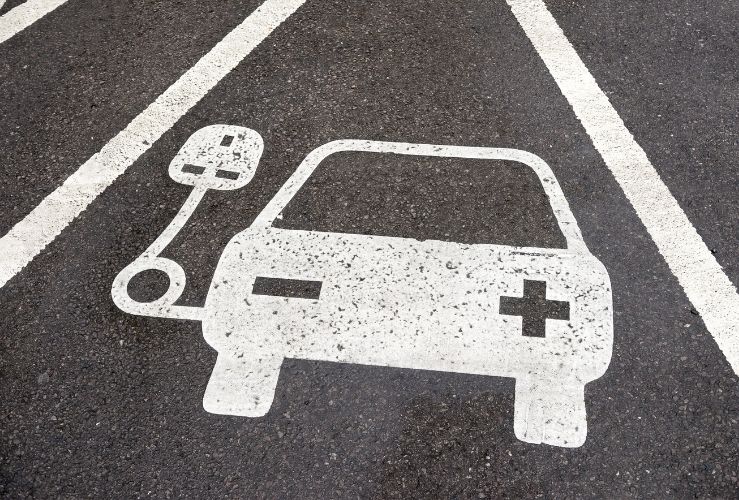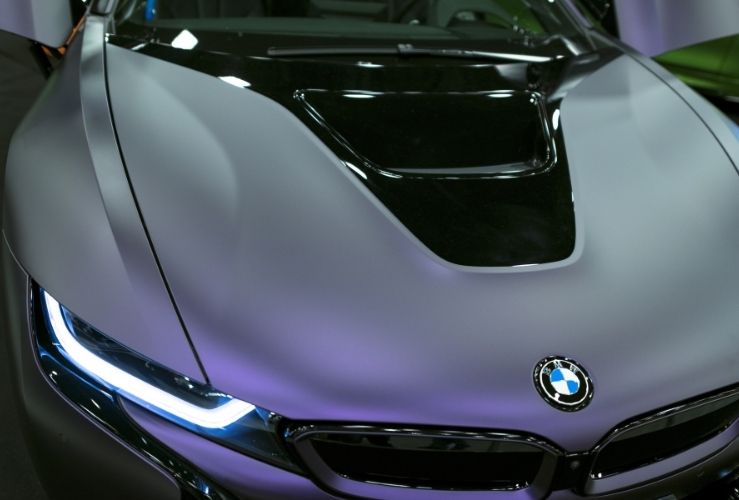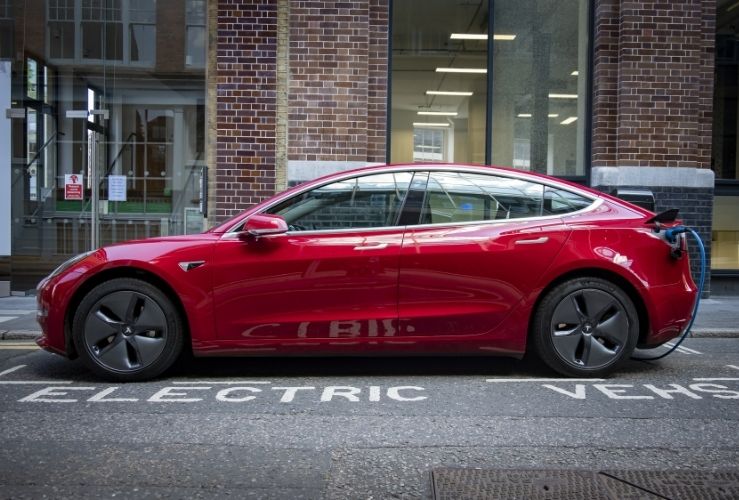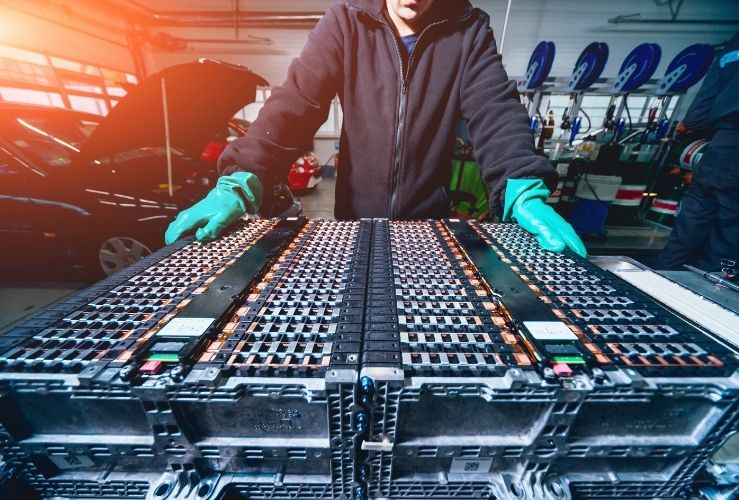Considering buying an electric car for the first time?
You may be wondering about the likelihood of a breakdown. After all, breakdowns are stressful and potentially costly.
Another question that you may also have is how long do electric cars last?
The lifespan of an EV is not dissimilar to a petrol or diesel vehicle.
Do electric cars break down?
The short answer is that while the latest electric cars are bristling with innovative technology, they still do break down - only less often than petrol or diesel cars.
Here’s a look at the key components of an electric vehicle and the likelihood of them suffering a breakdown:

Engine
Electric engines are more reliable than petrol or diesel motors because they have fewer moving parts.
With fewer components to wear out or fail, reliability is improved. Maintenance requirements are also reduced.
No clutch, gearbox, or oil filter
With no conventional clutch or gearbox to worry about in an electric car, these breakdown risks are eliminated. There are also no oil filters to replace.
Indeed, the most common problems with electric cars that you are likely to face are with the in-car electrics, tyres or battery.

Credit: Aleksei - stock.adobe.com
Moving parts and bulbs
But just like any other road-going vehicle, there are parts in an EV that do wear out or fail over time.
These parts include:
- Tyres (punctures, wearing out)
- Brakes
- Suspension systems
- Windscreen wipers
- Bulbs
- Actuators
Other ancillary components that can fail include:
- Hot seats
- AC/heating
- Infotainment systems
Batteries
EVs usually come with two batteries: one for supplying the motor with power, and the other for powering the rest of the car's low current systems - such as the critical safety systems, infotainment, lights etc.
If either of these run flat, you may find yourself stranded by the roadside.
12V battery
The main reason most EVs have a separate 12V battery is to maintain critical safety systems in the event of a high voltage power failure.
If the main battery fails or runs flat, the 12V battery will still provide current to emergency blinkers, airbags, seatbelt pretensioners, brake boosters etc.
How long does a 12V battery last?
Ev's generally use AGM (absorbed glass-mat) batteries as opposed to traditional lead-acid cells.
AGMs last 3-4 years, but lifespan can be reduced with heavy usage.
That said, 12V batteries will age quicker if the car is driven infrequently, which could result in your electric car breaking down.
 Credit: William - stock.adobe.com
Credit: William - stock.adobe.com
Main battery (lithium-ion)
Generally speaking, an EV's lithium-ion battery powers high-drain systems, including the motor, the AC compressor, the cabin air heater, and battery coolant heater.
Running out of power is therefore a key breakdown risk for EV owners.
How often do electric cars break down due to lack of charge?
more aware of their vehicles' battery range.
As time moves on this may change - particularly as more employees are given company EVs to drive, and with the expansion of EV car share schemes, when drivers might forget to plug in their cars after use, leading to an electric car breakdown.
EV batteries are designed to last up to 10 years if driven carefully. However, by that time capacity will be reduced by as much as 70%, which will reduce range.
For reference, Tesla currently offers a Battery and Drive Unit Warranty of 8 years or 100,000 miles, whichever comes first.
Replacing an EV’s out-of-warranty lithium-ion battery can be expensive, although this may be partially offset by some cashback schemes for old batteries.
With some EVs - such as the Renault Zoe - the battery is leased, so owners don’t have to worry about buying a new battery if and when the time comes.
Electric car breakdown cover
As more people are moving away from ICE (Internal Combustion Engine) petrol and diesel vehicles, the demand for electric car breakdown cover continues to increase.
At Start Rescue you won’t pay anything more for electric vehicle breakdown cover than you would for standard cover.
At Start Rescue we work with a network of vehicle recovery operators who are specifically trained in handling electric vehicle breakdowns so you can rest assured that should your electric car break down, the correct processes will be followed to ensure your electric car is recovered safely.
Can EVs be charged by the roadside?
At present, when an EV runs out of power, it is usually towed to a charge point to be re-charged.
This solution is quicker than having to wait for a roadside assistance operative with charging equipment.
Currently, access to such equipment is limited, but this is certain to change as EVs become more commonplace on our roads.
To date less than 1% of the UK's 37.5m cars are pure electric.
Towing an EV: Can you tow a broken down electric car?
Can you tow an electric car if it breaks down?
Care needs to be taken when towing EVs, which are often automatic and four-wheel-drive, and therefore easily damaged.
Electric cars do not have transmissions, so putting it in neutral and towing it can cause a lot of damage to the electric motor.
Any tow in the event of a breakdown should not be carried out by a tow truck with a tow cable, but the EV should instead be recovered via a flatbed truck.
Towing a Nissan Leaf
The Nissan Leaf owners manual states: “Never tow with the front wheels on the ground or four wheels on the ground (forward or backward), as this may cause serious and expensive damage to the motor.”
Nissan strongly recommends broken down vehicles are placed on a truck rather than towed.
Transporting a Tesla
Similarly, Tesla's policy states, “damage caused by transporting is not covered by the warranty”.
One of the disadvantages of electric cars is the serious damage that can be caused if an EV is not transported correctly in the event of a breakdown.
As our network of vehicle recovery operators are specifically trained in handling electric car breakdowns, the correct processes will be followed to ensure your electric car is towed appropriately.
Can you push an EV if it breaks down?
As with towing, pushing an EV if it breaks down risks damaging the electric motor.
The wheels of an EV are directly linked to the electric motor even if you have the car in neutral.
Are electric cars safe in a crash?
Electric cars are no less safe in a crash than conventional petrol or diesel cars.
The European New Car Assessment Programme (NCAP) is an independent vehicle safety body that oversees official crash-testing of new cars.
Most electric and hybrid cars on sale today have received the top, five-star safety rating from Euro NCAP.
This five star rating means that the EV has overall excellent performance in crash protection and is well equipped with comprehensive and robust crash avoidance technology.
Software problems
Some EV problems are software-related.
These can often be fixed remotely by the manufacturer.




